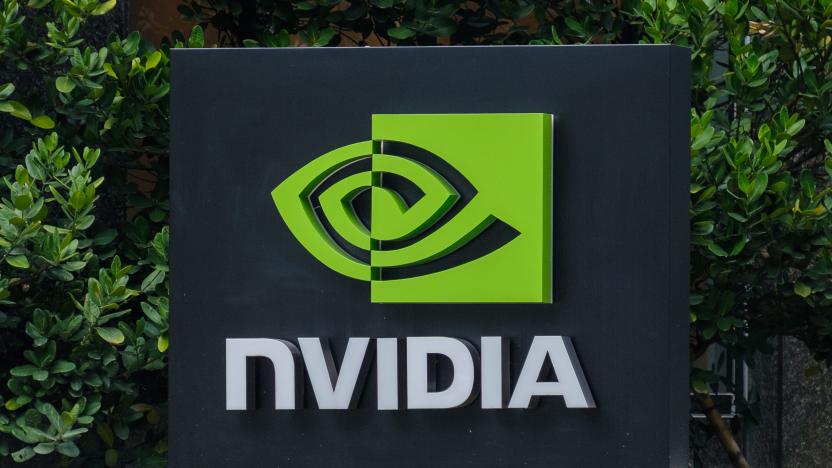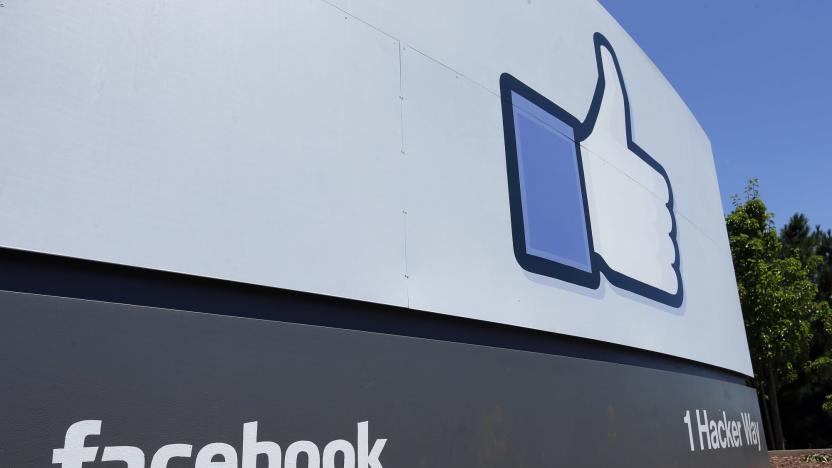regulators
Latest

Report suggests NVIDIA is preparing to walk away from its ARM acquisition
NVIDIA has reportedly made little to no progress in gaining regulatory approval for its purchase of ARM and is privately preparing to abandon the dea.

Elon Musk says 'issues' have forced Tesla to pull its latest full self-driving beta
Tesla's latest Full Self-Driving (FSD) beta software 10.3 has been pulled shortly after it was released, with CEO Elon Musk citing "some issues."

Google will likely win EU approval for its $2.1 billion Fitbit deal
Google is reportedly on track to win EU antitrust approval for its $2.1 billion acquisition of Fitbit.

Amazon's search could push customers toward in-house products
Amazon reportedly tweaked its product-search algorithm to favor products that are more profitable to the company. People who worked on the algorithm say the change could give Amazon's own brands a boost, The Wall Street Journal reports. If Amazon is intentionally using search to promote its own goods, it will likely draw more criticism from antitrust regulators.

Facebook’s Libra Association is being investigated by EU antitrust regulators
Facebook's Libra cryptocurrency project is being probed again, this time by European Union antitrust regulators. The European Commission said it is "currently investigating potential anti-competitive behavior," related to the Libra Association, Bloomberg reports. In a questionnaire sent out this month, the EU authority expressed concerns that Libra would unfairly shut out rivals.

Withings restores its cardio health feature on scales in Europe
When Withings introduced pulse wave velocity (PWV) measurements on its flagship scale, it offered customers an indicator of their cardiovascular health. In addition to more standard calculations, like weight and body mass index, the Body Cardio scale used the PWV measurement to estimate the "stiffness" of users' arteries and the correlated risk of hypertension or cardiovascular incident. But in January 2018, Nokia (which then owned the company) voluntarily pulled the feature, fearing that it might need additional regulatory approval. As of today, Withings has returned the PWV measurement to its scales in Europe.

Facebook will cooperate with French hate speech investigation
Facebook plans to cooperate with the French government as it investigates the company's content moderation policies and systems, according to TechCrunch. Facebook will reportedly grant the government significant access to its internal processes for the informal investigation, which will primarily focus on hate speech on the platform.

Facebook's awkward mood experiment under investigation in the UK
Facebook may have brushed off the furor over a psychological experiment that influenced what users saw in their feeds, but UK regulators definitely haven't. According to the Financial Times, Britain's Information Commissioner and the Irish Data Protection office (Facebook's EU base is in Ireland) are probing the social network's activities to determine if it did anything illegal. Back in 2012, Facebook changed the number of negative or positive comments that a select group of users saw in their feeds, ostensibly to gauge the effect on their moods. As you might expect, people who saw the negative comments were more inclined to write negative posts, and vice versa. While it apologized, Facebook also tried to justify the experiment by saying it benefited users and didn't compromise anyone's privacy. Still, when a UK politician told the Guardian that "if there is not already legislation on this, then there should be," it didn't seem the matter would quietly go away. [Image credit: Bloomberg via Getty Images]

Google ordered by French regulators to revamp privacy policy or face fines
Google has been under the gun in the EU for a while now about its privacy policies, particularly in France, which is fairly hardcore about such matters. In fact, the nation's CNIL computer watchdog has just ordered Mountain View to change its practices or face an initial maximum fine of €150,000 (around $200,000), followed by a penalty of up to €300,000 for further non-compliance. Google has just three months to fall in line, and the French regulator's ruling could just be the beginning; it investigated the search giant at the EU parliament's behest, meaning nations like Italy, Spain and the UK could follow suit. For its part, Google -- which is no doubt very sensitive to such matters at the moment thanks to the NSA saga -- said it "respects European law" and will continue to work with French and EU authorities on the matter.

EU regulators unsatisfied with Google's response to privacy policy concerns
European Union regulators weren't exactly content with Google after it rolled up most of its privacy policies into a monolithic document early last year, and it doesn't seem like that's about to change. After giving Page and Co. four months to respond to 12 recommendations regarding its new policy, French regulator CNIL has come to the conclusion that "Google did not provide any precise and effective answers." Though EU officials aren't happy with Mountain View's responses, Google says its policies respect European law and that it replied with steps to address the concerns by the January 8th deadline. Still, data protection regulators are committed to their investigation and are aiming to form a group before the summertime that would respond to the search titan.

China clears Google acquisition of Motorola, eliminates last barrier to Googorola bliss (update)
The final significant roadblock to Google's buyout of Motorola has been cleared, as Chinese regulators have just given their rubber stamp. Their approval follows a few months after the simultaneous American and European clearances, and virtually all that's left now is to formally close the deal and start integrating the two mobile giants. It might still come too late for the combined entity to present a united front at Google I/O, but at least they won't have any awkward glances at each other across the room. We're just trying to decide on whether or not Googorola is the best pet name for the loving, $12.5 billion-dollar Android union. Update: Google has since told the AP that the deal will likely wrap up early next week, so Motorola should be part of the family well in advance of Google I/O. Also, Google has to keep Android freely usable by anyone for at least five years, although no one was expecting that to change anytime soon.

SEC investigating movie studios' dealings with China
Reuters is reporting that regulators have begun a probe of American movie studios and their dealings with Chinese officials. The Security and Exchange Commission has sent letters to at least five companies, including 20th Century Fox, Disney and DreamWorks Animation requesting information about "potential[ly] inappropriate payments" made to members of the Chinese government. The market in the pseudo-Communist nation is seen as one with huge potential for US-made films, but the state-owned China Film Group has placed strict limits on foreign cinema. However, in February, the group agreed to loosen restrictions and exempt up to 14 IMAX or 3D films a year (along with their 2D counterparts) from the 20 movie cap on international media. Around the same time, DreamWorks announced it would be building a production studio in Shanghai with participation from several large Chinese media companies. Even Disney struck a deal that will see the next Iron Man title co-produced by China's DMG Entertainment. The sudden shift in tone must have raised some eyebrows with watchdogs, and the SEC has responded by hitting up the studios for info over the last few months. Obviously, we'll be keeping an eye on this to see how it develops.

Expedia adds to Google's EU antitrust woes, decision expected after Easter
Google's position as the dominant search engine doesn't come without a price. Smaller search sites have already tapped on the EU Commission's door to register their complaints about how they are ranked, and Microsoft has also let its feelings on the matter be known. Now, we can add the Redmond spin-off, Expedia, to that list of sore losers disgruntled firms. The travel search site claims it has specific details outlining how the search giant has violated European anti-competitive laws. A Google spokesperson issued a statement saying "We haven't seen the complaint yet, but we've been working to explain how our business works, cooperating with the European Commission since this investigation began." The EU Competition Commissioner says a decision will be made after Easter, at which point Mountain View will either be charged, or the investigation will be dropped. If only that were the end of its EU troubles.

FTC: Western Digital and Hitachi must give assets and IP rights to Toshiba (update: sale approved)
Thought everything was looking rosy for the hard drive hitch of the year? Well, it looks like Federal Trade Commission reckons the union of Hitachi and Western Digital isn't quite there just yet, ordering that the new company would have to shed some of its assets to Toshiba. The FTC wants to ensure a competitive climate in the 3.5-inch hard drive market and avoid Western Digital and Seagate -- the two largest HDD manufacturers -- carving up the whole sector between them. According to the FTC's proposals, Toshiba has to receive the production assets needed to equal Hitachi's current HDD market share, alongside access to Western Digital's research and development resources and licenses to its intellectual property. Regulators had previously stated that WD could expect to sell on some of its production assets in order to get the tie-up okayed. Western Digital now has 15 days to hand over these assets to Toshiba -- who, presumably, aren't complaining -- once the deal with Hitachi is finally inked. Update: Looks like all the FTC wrangling was worth it, because WD and Hitachi have announced that all the necessary approvals have been obtained and the deal is due to close on March 8th. PR's after the break.

European regulators set sights on Carrier IQ, rootkit scandal goes international
Most of the bruhaha over Carrier IQ and its activity-tracking rootkit has been contained to the US so far. That's about to change though, and the software company could find itself at the center of an international privacy scandal. The British Information Commissioner's Office and the European Consumers' Organization have both started looking into the diagnostics software, while the Bavarian State Office for Data Protection has specifically engaged with Apple over its inclusion of parts of Carrier IQ's suite in iOS. This, of course, comes only days after US lawmakers requested their own government open an investigation. So far, all of the major British providers have denied using the tool on their handsets but, the drama is still unfolding and there's plenty of time for others to get caught up in this mess.

Western Digital purchase of Hitachi's hard drive business approved by EU regulators
Two of the hard drive industry's biggest players will soon be just one company. European Union regulators have given a conditional thumbs-up to Western Digital's plans to snatch up Hitachi's storage division for $4.3 billion. The companies are the second and third largest hard disk manufacturers in the world (respectively) behind Seagate, which purchased Samsung's HDD division back in April. Out of concern for the quickly consolidating market, regulators only approved the Western Digital deal after assurances that the company would sell off some its production assets, including a manufacturing plant, and transfer some intellectual property to the new unit being put on the auction block. As soon as WD finds a buyer it'll be free and clear to take over Hitachi's HDD division. So, anyone interested in a hard drive manufacturing plant?

FCC hails spectrum alliances with Canada and Mexico, seeks to reduce border conflicts
It's not every day that the FCC enters into new multinational agreements, so you'll have to forgive us for getting excited over the latest communique between Chairman Julius Genachowski and his counterparts in Canada and Mexico. After much negotiation, the regulatory heads have created a framework to resolve frequency conflicts along our nations' borders. While the deal with Mexico only applies to the 700MHz spectrum, the agreement with Canada also covers the 800MHz range. By reducing interference and maximizing spectrum allocation, Genachowski believes "these arrangements will unleash investment and benefit consumers near the borders by enabling the rollout of 4G wireless broadband service and advanced systems for critical public safety and emergency response communications." Once the policies become official mandates, license holders must coordinate and implement techniques to mitigate signal interference or face some nasty regulatory intervention. If you're a sucker for policy, just leap the break for the full press release.

Microsoft lodges antitrust complaint against Google with European Commission, ignores irony
So Microsoft doesn't like anticompetitive behavior, huh? Since when? Brad Smith, General Counsel for the Redmond rabblerousers, has posted a lengthy blog post outlining Microsoft's concerns with "a pattern of actions that Google has taken to entrench its dominance" in online search and ads, which he claims is detrimental to European consumers. Funnily enough, half the post is about Google's legal issues in the US, but we'll set that aside for now. What this boils down to is that Microsoft is finally taking the gloves off -- Google accused it of pushing other companies to do its dirty work -- and is now adding its name to the list of objectors to Mountain View's stranglehold on search in Europe. The European Commission is already taking a regulatory looksee at Google's tactics, so this isn't sparking off a new investigation, but it does add the glamor of two big names locking legal horns yet again. Hit the source link for Brad's exposition of Google's villainous wrongdoings.

Time Warner, Disney and News Corp. bigwigs speak up against FCC stipulations in Comcast-NBC deal
Hello, inevitable. It simply had to happen, and now, it is. As Comcast, NBC and the FCC attempt to work out stipulations over Comcast's proposed 51 percent buyout of NBC Universal, a smattering of major media companies are paying close attention to the play-by-play. Naturally, the precedents that are set from this deal will affect future agreements of this caliber, and lobbyists for both Disney and News Corp. (as well as Time Warner CEO Jeff Bewkes) aren't standing over on the sidelines any longer. All three outfits have reportedly been "voicing their concerns this week with the FCC, worried that such conditions could undermine their own efforts to profit from the nascent online video industry." We're told that the media mega-corps are worried that the rules -- if hammered down -- could interfere with ongoing negotiations with online video providers, and in turn, give them less leverage to monetize and control their content on the world wide web. In other words, if NBC Universal is forced to provide content fluidly to all ISPs (and not just Comcast), what's to say other content makers and internet providers wouldn't also be forced into similar deals, regardless of whether or not they're involved in takeover negotiations? Needless to say, we're nowhere near the end of this journey, and while the nuts and bolts are pretty dry to think about, the outcomes could have a serious impact on our future viewing habits.

FCC proposes rules for NBC-Comcast deal
As you can imagine, the thought of a marriage between a broadband / cable TV service provider and a content provider for television and movies has more than a few folks concerned, which is why it's taken a while for the FCC and its erstwhile chairman Julius "Caesar" Genachowski to draft the conditions under which it would let Comcast snatch up 51 percent of NBC Universal. According to the Wall Street Journal, the FCC wants to require that Comcast make any content owned by itself and NBCU available to competitors (including streaming video providers) "at reasonable, nondiscriminatory terms." Additionally, Comcast will be barred from prioritizing its own video streams above others or interfering with rival Internet traffic. Of course, without the actual announcement, it's hard to know what impact this will have on everyone involved (especially Hulu), although with any luck the actual proposal will see the light of day soon enough. Even then, it will need to be approved, which could happen early next year.









